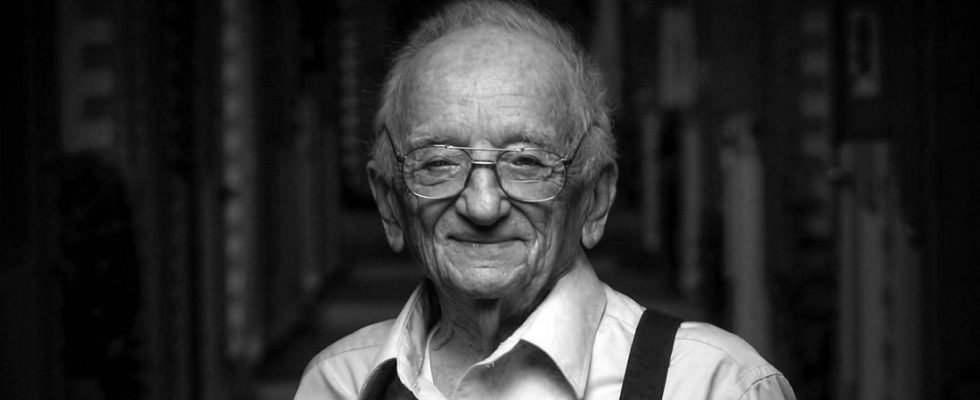Benjamin Ferencz once summed up his first mission as follows: “I was the first man in the US Army to investigate war crimes. I had a jeep that said get out of the way.” That was in 1943/44, as a private he fought against the Nazi state. In the Dachau, Mauthausen and Buchenwald concentration camps, as a young man he saw mountains of corpses and people who were almost starving and exhausted on the so-called death marches. From this experience (“I was staring into hell”), Ferencz derived his life motto as a lawyer: “Law, not war”. And he lived by this motto for 103 years. It was not only his age that made him a “witness of the century”, but above all that he stood up for peace and justice every day and into old age.
For a long time, Ferencz received little recognition in Germany, but as the “last living chief prosecutor at the Nuremberg trials” he has become known to a wider audience in recent years – and not just because of one biography and a documentary, but also an autobiography (“Always tell your truth. What 100 years of life have taught me”) and his “Benny Stories” on the Internet, a kind of Internet diary, contributed to this. The title of the film was appropriately: “A man can make a difference.”
He came to New York as a child of Jewish parents and worked his way up
Benjamin Ferencz, born on March 11, 1920 in Nagysomkut, Hungary (now Somcuta Mare in Romania), came to New York as a child of Jewish parents and worked his way up from a poor background to get a law degree from Harvard Law School in 1943. Aus His other life motto comes from these times: “Never give up, never give up and never give up”. As a member of a newly formed War Crimes Branch, Ferencz secured evidence of Nazi crimes and worked for the US Chief Prosecutor Allied military tribunals in Nuremberg against the main war criminals, Telford Taylor, 1945/46.
When one of his associates accidentally found a folder with meticulous documentation of the murders of the “Einsatzgruppen” – police units that carried out the Holocaust outside the extermination camps – in the Soviet Union, Ferencz got his first chance as a lawyer. From the fall of 1947, Ferencz, then 27 years old, appeared as the lead prosecutor in the so-called task force trial, the ninth of the “Nuremberg follow-up trials”. He himself described the process as the greatest murder trial of all time. In fact, the 24 defendants were accused of acts that had cost hundreds of thousands of lives. The indictment was based on the completely new crime of genocide under international law – a historic step.
The legal handling of war and violent crimes by the state shaped the life of the Jewish-American lawyer well into the 21st century. His second mission was what was then known as compensation. In 1948 he became Director General of the Jewish Restitution Successor Organization (JRSO) and negotiated the return of expropriated Jewish property. In the 1950s he vehemently demanded compensation payments from German companies to surviving concentration camp prisoners for the slave labor they had performed.
He saw Putin’s war of aggression in Ukraine as an attack on his life’s work
Back in the US, he joined Telford Taylor’s law firm (where he became a wealthy man who also gave millions of dollars to charitable causes). In the 1970s he campaigned for the reorganization of international criminal law, demanded the application of the “Nuremberg Principles” worldwide in view of the Vietnam War and became a symbol for the establishment of the International Criminal Court. In 2009, at the age of almost 90, he symbolically opened the prosecution’s first pleadings in The Hague. His third mission was accomplished.
But not his greatest wish: “I’ve seen that actually decent people can become mass murderers. War can do that. War destroys every form of morality and was still glorified for centuries. I’ve spent my life trying to turn this view around and accept it ensure that whatever has been glorified is seen for the horrific crime that it is.”
The historical role by Benjamin Ferencz goes beyond the meaning of the Nuremberg war crimes trials. He was nothing less than a champion of international law, who saw Putin’s war of aggression against Ukraine as an attack on his life’s work. With him, the inhumanity of Nazi racial policy was understood when he soberly told how the murderers saved bullets by killing women and babies with one shot. That’s why he never sounded kitschy when he spoke of justice and peace in the world.
On April 7, Benjamin Ferencz died in Florida at the age of 103.

